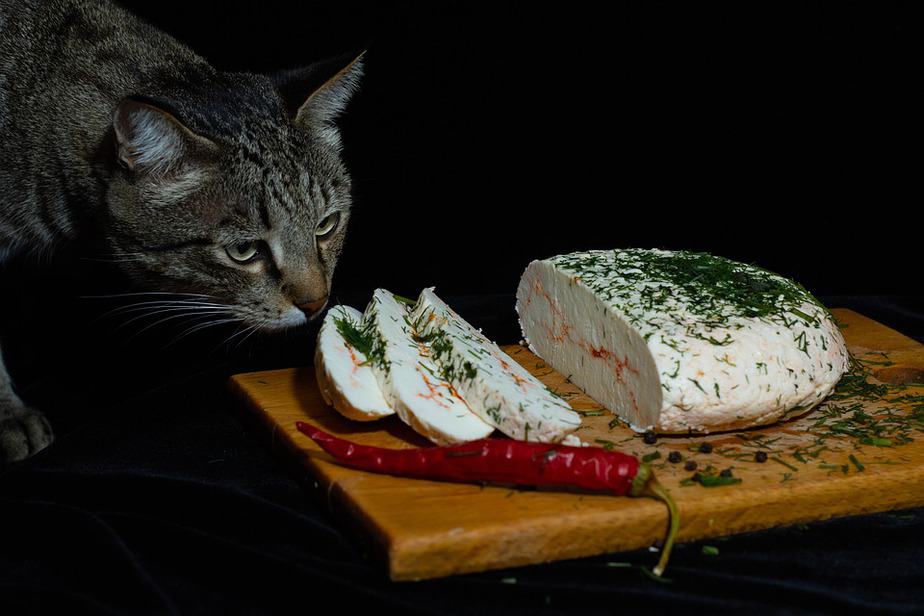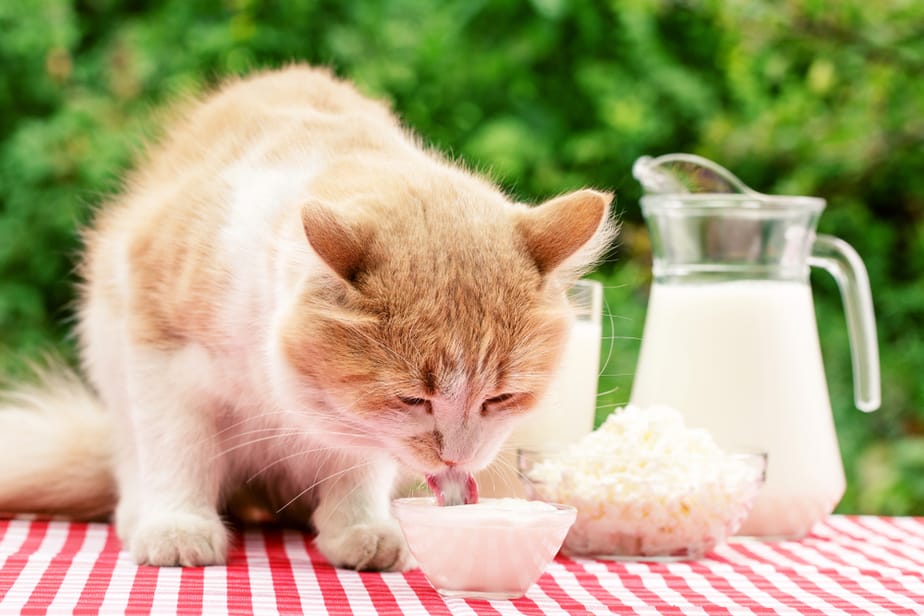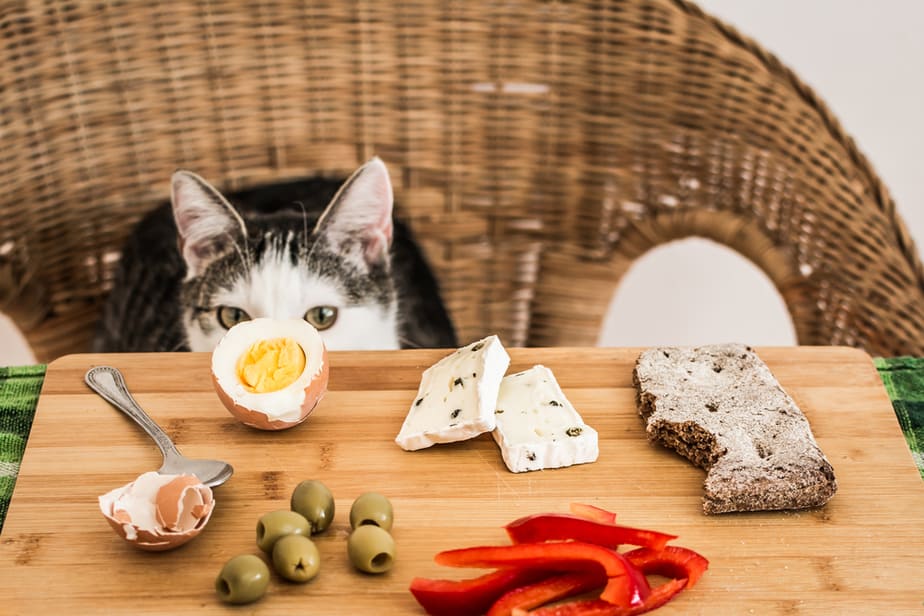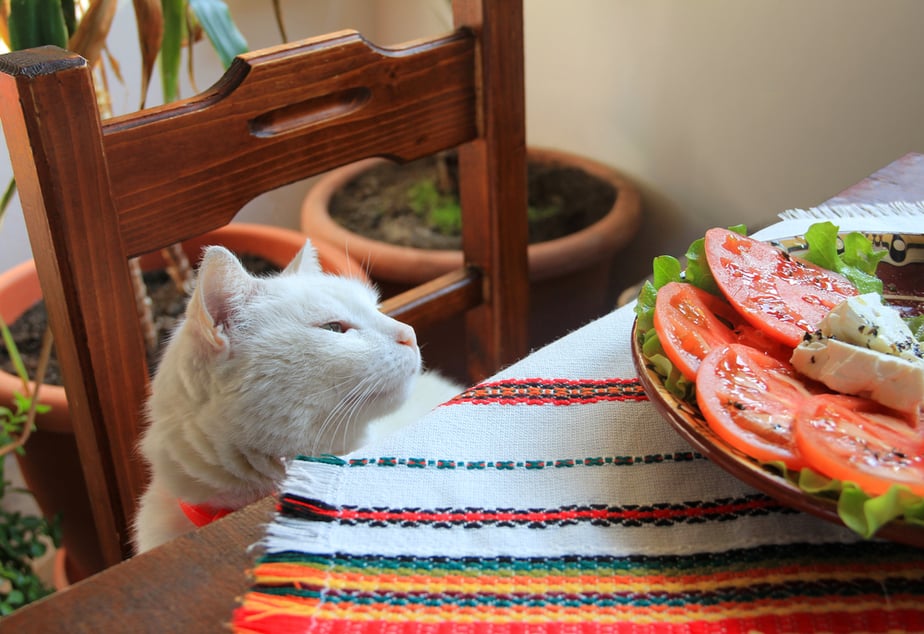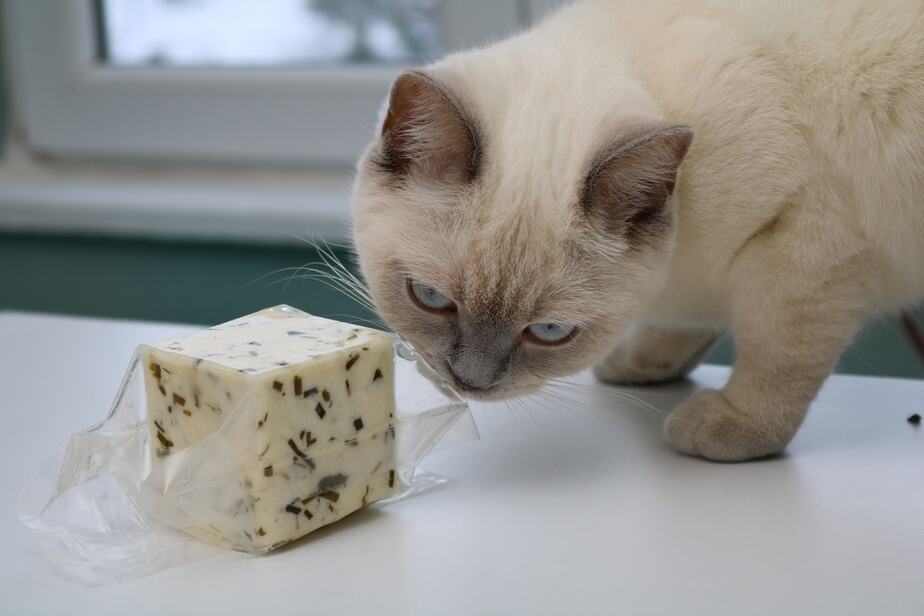📖 Table of Content:
We all love good cheese, and feta just makes our dreams come true. When it comes to cats, however, they are finicky eaters. But we’re certain they won’t pass up on cheese. The only question is, can cats eat feta cheese?
We tend to judge whether certain foods are safe by offering them to our furkids. Cats are good at being guided by their instincts, but sometimes they can be wrong too.
I’m certain that if you tried to feed your cat some feta cheese, she’d be more than happy to oblige. Sometimes, our furry friends can be a bit greedy and it can get the best of them. This wouldn’t be a problem if all human foods are safe for them.
Is feta cheese safe for cats?
If you’re looking for a short answer on this one, you won’t find it here! Feta cheese is more than just a dairy product, so we’ll offer a detailed explanation of how it impacts felines. However, if you’re wondering can cats eat feta cheese so you can feed your pet with it, the quick answer is no.
Because, as previously mentioned, oftentimes cats will try and make eating human foods a habit. If you introduce new foods to her, and your furball goes crazy about it, she will beg constantly. Don’t ask me how I know.
We’ve all been there and know that it’s no easy task distracting your stubborn feline. Not to mention that all of her old food and treats can just rot in the pantry once she gets a taste of something new.
If your kitto has swiped some feta cheese from your salad, that’s fine. It’s not something to lose your mind over. However, eating feta cheese in the long run or in large portions isn’t advisable, and let’s see why.
Dairy content
If you don’t already know, cats are lactose intolerant. How could they be if they’re constantly being shown drinking milk? We understand why you’re asking this because you’ve seen cats lapping up milk since you were a kid.
However, sorry to burst some of your childhood memories of certain movies, but felines actually can’t and shouldn’t drink milk. In the kitten stage, they have the enzymes required for the digestion of lactose, a sugar found in milk.
But as they grow older, they lose the abdominal enzyme lactase. This is where all the trouble begins. If your pet eats a considerable amount of feta cheese, she could get the runs. It’s because feta cheese is a by-product of milk, which means it’s packed with lactose.
Lactose intolerance is best recognized if your cat starts exhibiting signs of gastrointestinal discomfort. These oftentimes include vomiting, diarrhea, gas, as well as bloating. However, you shouldn’t mistake lactose intolerance for dairy allergies.
Dairy allergy
The symptoms might look similar and it’s sometimes not easy to differentiate the two. But some of the most obvious signs of dairy allergy include skin rashes, itchiness of the skin, as well as swelling of the mouth and throat.
If you notice any of these symptoms, make sure to take your feline to the veterinarian so they can provide her with the best treatment. Every cat is an individual and therefore, they all will have different reactions to certain foods.
Dairy allergy is something your pet can be born with or develop later in life. It sucks, right? People who are lactose intolerant and have dairy allergies can relate. However, just like your furry friend can develop it, she can also stop being allergic to dairy.
Nevertheless, any dairy product, such as feta cheese or sour cream, can irritate your pet’s stomach and cause an allergic reaction. Therefore, be sure your cat only manages to steal a few bites of feta cheese. Otherwise, you could come home to a less-than-lovely scene.
Can cats eat feta cheese because of the salt?
This is probably one of the main reasons you shouldn’t encourage your cat to eat feta cheese. It’s high in sodium, which can turn out to be a disaster for felines. We know you’re wondering how is that possible, so stick around for the explanation.
Sodium is a mineral that’s needed for good health. Both humans and felines can benefit from it because it keeps our fluid levels in check. However, you know how they always told you to not put too much salt in your food?
High salt intake can have adverse effects on both your and your cat’s health. Cats are more likely to get the short end of the stick with this one, though. Excessive amounts of salt are known to cause high blood pressure and even strokes.
When it comes to cats, they can easily get poisoned by salt. If she ingests too much of it or just has regular access to this table condiment, her health could be in danger.
Sodium poisoning isn’t something to be taken with a grain of salt. Pun intended, but you should take this seriously. Excessive amounts of salt in your feline’s body could cause your pet to experience symptoms such as vomiting, diarrhea, as well as excessive thirst and urination.
Too much salt can get us dehydrated, let alone cats who don’t even like drinking water. However, these symptoms are the least of your worries. In extreme cases, felines can experience seizures and tremors. Although not so common, salt toxicity can even induce a coma.
This sounds terrifying, and it is! Feta cheese is packed with salt, so it’s best if you refrain from feeding it to your cat.
What about the fats?
We all know that eating foods that are high in fat isn’t recommended. Furthermore, it’s unhealthy and can cause us to gain weight. If you’re not looking to put on some extra pounds, then you should stay away from high-fat foods.
The same goes for feta cheese. Cats can eat small amounts of it, but too much feta can lead to obesity. It’s loaded with fats, and a majority of them are saturated, unhealthy ones. While it does contain some unsaturated fats, the unhealthy ones prevail.
Although it’s a good source of protein, in this case, the cons outweigh the pros. If you’re looking for ways to add some more protein to her diet and she’s had enough of meat, tofu is a safe choice, as long as it’s given in moderation.
Too much fat can lead to serious health problems. Over time, these unnecessary nutrients pile up in your cat’s body, causing food storage. Chubby cats are a sight to see, but overweight pets have a poor life quality.
This means obesity can weigh them down, literally. It puts pressure on their joints and is one of the leading reasons for the development of arthritis later in life. High-fat foods also increase the risk of high blood cholesterol.
It’s a reason for concern because that way, your pet’s chances of getting a stroke or some heart disease are increased. Make sure you think of this next time before offering your pet feta cheese.
If it’s bad, why are cats attracted to it?
Cats are smart little creatures and they make good choices – most of the time. The reason your furball might be interested in this creamy dish is the fat and protein content. Felines know what they need and will try to get hold of it.
The fats found in feta cheese are mostly saturated, as previously mentioned. However, those healthy ones are important for your pet’s health. In the wild, cats will feast on the fattiest parts of the animal.
While our domesticated pets aren’t the same as their wild cousins, the instinct is still there. Fat is an excellent source of energy and stimulates muscle growth as well. Without fat, your cat would most likely lose weight and be unable to keep herself warm.
Felines are carnivores and require a special protein-rich diet. Next to fats, it’s the most important nutrient that’s essential for a cat’s development. Without it, felines don’t really stand a chance at survival.
The thing is, carnivores are made to break down meat-based foods. This means your cat has no trouble gorging down some turkey bacon. It also means that she won’t have the time of her life with plant material because their digestive systems are not equipped for it.
So, while cats are attracted to the “good” elements of feta cheese, these benefits will be overridden by the unhealthy elements. So, we can safely say that feta cheese has little nutritional value to cats and should rather be excluded from your furchild’s diet.
Can cats eat baked feta cheese?
We hope you weren’t too optimistic about this question. As previously stated, feta cheese is best to be avoided by your four-legged companion. Foods prepared with feta cheese can also be a threat to your pet’s health.
For example, baked feta cheese is as harmful as regular feta cheese, if not more so. This dish contains other ingredients, such as bell peppers, onion, and tomatoes. While bell peppers are perfectly fine for cats, the rest is troublesome.
One of the elements that are highly toxic to felines is Allium crops such as garlic, onions, chives, and leeks. Unfortunately, despite their extensive usage in human cuisine, these are strict no-nos for kitties. Alliums contain compounds that are dangerous to cats in that they can destroy red blood cells, thereby causing several types of anemia.
In short, garlic and onion, in any form, are harmful to your cat’s health. Your cat is better off without them, whether powdered, cooked, raw, or in any other form.
We’re familiar with the link between cats and vegetables. Things aren’t much different when it comes to tomatoes. They are a part of the Nightshade family, which is known to be harmful to cats.
The alkaloid solanine is found in all members of this family, including eggplant. Tomatoes can upset your cat’s stomach, resulting in nausea and diarrhea. Side symptoms such as a fever or a headache are also possible. Avoid foods like tomato soup and others that contain this veggie.
In summary
Whether your cat stole some of your feta cheese from your dish or straight from the package, it doesn’t matter. Small amounts can be tolerated, but anything other than that should be considered harmful.
Felines are lactose intolerant, and that in itself answers your question of whether cats can and should eat feta cheese. Furthermore, feta cheese is packed with salt which is another red flag for felines.
To sum up, feta cheese is not recommended for cats. Rather keep some feline-friendly treats at hand the next time your little manipulator stares at you with those big begging eyes!
Read more: Can Cats Eat Goat Cheese? Here’s What You Need To Know!
